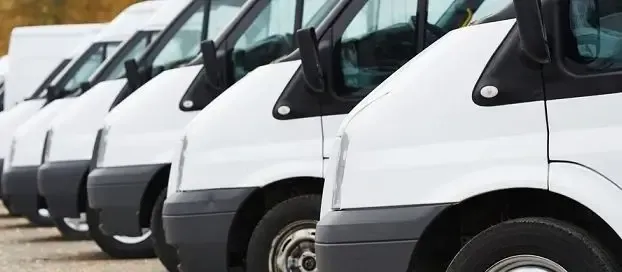Travel can be a very significant cost to businesses and organisations. Vehicles, whether hired or purchased outright, almost always represent significant financial outlay. Then there are the costs associated with running and maintaining those vehicles, including tax, insurance and fuel.

There are several easy tactics businesses can employ to reduce travel costs and make savings. In this article we take a look at how businesses can reduce non-vehicle travel costs and reduce costs associated with the running of fleet vehicles.
Non-Vehicle Travel Costs
Travel costs including taxis, public transport, flights and train fares are a normal part of business expenditure. Many employees are required to travel as part of their job role for a number of reasons including to fulfil customer commitments. In order to save money on these costs we recommend that businesses follow the following tips:
- Book in advance - booking train fares and taxis in advance can help businesses save a significant amount on travel costs compared to buying a ticket when it is needed.
- Shop around for deals - there are many companies who offer business deals on travel including taxi firms and train companies.
- Plan to travel off-peak - planning meetings and travelling during off-peak periods this will help save on train ticket fares and the cost of taxis.
Vehicle Related Travel Costs
Purchasing or Leasing Vehicles
Many organisations operate vehicles, ranging from employee company cars all the way up to light and heavy commercial vehicles. Some choose to own them outright, while others use leasing arrangements or hire purchase.
However they are paid for, vehicles often represent a substantial cost for businesses. If you are looking to replace a commercial vehicle, we have some tips on how to reduce the cost:
- Conduct comprehensive research to uncover the best deals available
- Try to standardise the fleet – adopt just one or two vehicle choices to increase economies of scale and buying power
- Be aware of emissions regulations and ensure your vehicles are fully compliant and future-proof, to avoid incurring further costs later
- Consider both new and used vehicles for your business but be aware of maintenance costs and the potential issues that can arise
- Look into the fuel efficiency of the vehicles being purchased, fuel can be a large expenditure that needs to be taken into consideration
Vehicle Running Costs
Vehicles are expensive to run, insurance, tax and maintenance are all regular costs that vary depending on the vehicle purchased. When looking to buy a new vehicle consider these costs and the lifetime vehicle costs not only the upfront purchase amount.
Petrol and diesel are major contributors to fleet costs, which is why businesses have to do everything they can to keep spending under control. They can do this in several ways:
Fuel Efficient Driving
Advising drivers on the best way to reduce the fuel by driving efficiently can help businesses save on regular fuel expenditure. Here are some tips for drivers:
- Better use of gears – change gears early and keep engine revs low
- Reduce speed – higher speeds consume more fuel
- Keep tyre pressures correct – make drivers responsible for frequent checks
- Limit air conditioning use where possible to high-speed driving. At speeds below 40mph it’s more efficient to open a window
- Lighten the load – remove any cargo, roof racks or roof boxes when not in use as they can increase fuel consumption by as much as 30%
- Cut idling – if the engine is going to be off for three minutes or more, turn it off to save significant amounts of fuel
Business Fuel Cards
Fuel cards can help businesses save money on fuel prices and reduce the cost associated with fuel expense admin. Companies using fuelGenie benefit from all of the following savings and operational advantages:
- Savings of 3p+/litre by directing drivers to low-cost supermarket petrol stations*
- Free to own and use
- 24/7 online dashboard for easy management and admin – including usage tracking
- HMRC-approved invoices for easy VAT reclaim
- Competitive credit facility with no minimum spend
- Unlimited number of free fuel cards
- Drivers can also gain personal reward points using supermarket loyalty cards
* The “over 3 pence per litre” saving message is based on the difference between the published Government Weekly diesel fuel prices and the price paid per litre for diesel by fuelGenie customers for the comparable period. Over a 16-month period (02.01.2017 – 02.04.2018) fuelGenie customers buying diesel at Tesco, Morrisons and Sainsbury’s saved an average of 3.2 pence per litre when compared to the Government Weekly road fuel prices


